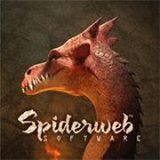
Featured Blog | This community-written post highlights the best of what the game industry has to offer. Read more like it on the Game Developer Blogs or learn how to Submit Your Own Blog Post
Why Indie Developers Go Insane
What we learned this week: Becoming a public figure does weird things to the human brain. Flappy Bird did absolutely nothing wrong, and a lot of the gaming press owe the author an apology. People troll because it works.

We all have our little mantras we use to get through the day. |
After I started writing games in 1994 and went full-time in 1995, I soon came to a conclusion about the people who do what I do for a living: "These people are all crazy."
Then, as I got older, I realized that I am crazy too.
Then, as I got even older, I switched to a better truth: Everyone is crazy. Every human has his or her damage. Nobody gets out of this world alive.
It's just that indie developers tend to have high visibility, high stress, and small support groups. These factors mean that, when these devs break, you see it, and it's spectacular. Twitter has only helped to make self-immolation faster, easier, and more public.
A lot of people love indie games because they are can so clearly be the product of real people. They aren't focus-grouped, penny-pinching, soulless chum. At their best, they have character. You might not like my games, but you can tell I CARE. They're works of love, recognizably the product of passionate brains.
And, since we care about the product of these brains so much, it's sometimes worthy to look at the brains themselves. Brains that spend half their time receiving more accolades than they deserve and half their time being the target of laserlike hate. These crazy, crazy brains.
I wanted to write a bit about the brain of the indie developer under stress. I don't want pity. I just think someone might find it interesting to read what it can be like to be in this particular box.
Simple. Free. Ad-supported. Indie. Popular. Addictive. BURN IT! |
What Brought This On?
For years now, the iTunes (and lately Google Play) app store has been this gigantic, rushing torrent of infinite money, and everyone has scrambled to grab their piece.
It's the most soulless, joyless, metric-obsessed market/ethics-free-zone imaginable. There is nothing that can't and won't have all fun and creativity sucked out of it to earn an extra penny from the "whales" (i.e. compulsives) who will happily shell out a hundred bucks a month to get Candy Crush Saga to let them play Bejeweled. (Hot tip: Uninstall Candy Crush Saga and play all the Bejeweled you want forever ad-free for three bucks.)
So for the last couple weeks, people, when they weren't raging about EA's pillaging all of their happy memories of Dungeon Keeper, were noting the runaway success of a tiny, free, ad-supported game called Flappy Bird.
Let's be clear. It's not a great game. It was written in three days by a young Vietnamese man named Dong Nguyen. It's really simple, crushingly difficult, pretty derivative, weirdly addictive, and marketed purely by word of mouth. And it became a huge hit, sucking the attention away from a million equally derivative money-sinks.
According to the author, Flappy Bird was averaging $50K a day. So here come the haters ...
Shut up, canada.com. |
If You Think There Is Something Bad About Flappy Bird, Here Is Why You Are Wrong
The Internet exists to crap all over everything. And Flappy Bird is simple, silly, derivative, and casual-friendly, so it was sure to bring the self-styled Defenders of Gaming out of the woodwork.
And why do people object to it?
One. The gameplay is similar to many earlier games. Well, of course. Flappy Bird is very similar to a host of press-the-button-to-make-the-helicopter-or-bird-stay-in-the-air games going back years. So what? Here's a news flash. If you write any sort of simple game, there is a %99.999 chance somebody already did it.
You can't copyright gameplay for a reason. If you could, small developers (including me) would never stand a chance.
(Many have claimed that Flappy Bird is a ripoff of a game called Piou Piou, which is laughable if you bother to actually try the games. They play entirely differently.)
Two. The art style is super-similar to early Nintendo games. Yes, Flappy Bird's art is reeeeeally close to some Nintendo games that came out in the last century. I've never seen proof that assets were lifted. It's just similar.
So what? Again, you can't copyright an art style, for a reason. If your art style could never be similar to someone else's, small developers (including me) would never stand a chance.
Three. The game is pretty rough. So what? If people choose to play it, nobody voted you the Queen of Gaming. It is so, SO not your business. I think players of Candy Crush Saga or mobile Dungeon Keeper are getting rooked and could get a lot more similar fun elsewhere for way less money, but I'm not running up and down the subway slapping the iPhones out of their hands.
Want to see people hate on Flappy Birds for no good reason? Look at this gross bit of anti-journalism from Kotaku. As of my writing this, the article begins with an update that basically says, "We changed the title of this article as it was pure slander." (Kotaku has since apologized for this piece, so thanks for that, I guess.)
Or look at this vicious example. Or this straight-out slander from the famed game critics of, um, canada.com. (At least Kotaku apologized.) Or, on the pretentious grad student end, this hilariously bizarre article in The Atlantic.
Or read the petty, jealous comments of any article on it. I promise you the author has. Every single one. Which is why this happened ...
Going ... |
Rough Lessons In How Humans Work
Dong Nguyen quit. A fortune coming through the door, and he walked away. As I write this, Flappy Bird has been removed from app stores.
Think about this. I mean you, personally. Think about what it would take to make you run from a gold mine like this. Really. Think about why someone would do this.
This is not about money.
If you've experienced any time as a public figure, especially one that is mainly hated on, it makes a lot of sense.
Dong Nguyen is a young guy. He wrote a game for fun, put it out there, and found himself at the target end of a massive wave of attention, much of it negative. I can't stress enough how insanely terrifying this can be, and he wasn't ready.
Hardly the first time this happened. Remember when Phil Fish, the successful author of Fez, canceled Fez 2 and quit the industry in a fit of pique? I've never been Phil Fish. I don't know exactly what was happening in his head when this happened. But it did happen, and I can totally relate.
It can be hard to understand why someone would kill a product that's making a fortune. Anyone can say, "Oh, gee. He has money. Who cares?"
Well, I promise you, there are things that money can't buy. If you are going mad, you can't buy yourself sane. Some people can take this sort of attention. Not everyone. And some people can take it, but it makes them ... weird.
... going ... |
I'm Crazy Too.
I've been the target of my fair share of hate. Real example: E-mails from angry schizophrenics. People who tell me they hope I go out of business and my kids never go to college. Pictures of me Photoshopped in various unflattering ways.
And, of course, the occasional truly unhinged message that I forward to my friends and ask, "Tell me honestly. Should I be worried about my safety here?"
I've been doing this for a long time, and I have a pretty thick skin. Even then, this stuff has an effect. You can't help it. It's part of being human. One angry message has more effect than ten friendly ones. It has a real psychic weight. And, once you know it's there, turning off your computer and avoiding Twitter doesn't remove it.
When my games had their own Humble Bundle, I should have been happy. I mean, I was, in a way. It'll help send my kids to college, and who could argue with that?
Yet, I spent that week in my room quivering with terror. When my developer/writer/artist friends find themselves in similar situations, they are often the same. I've been asked, "This is going so well. Why do I feel horrible all the time?" We neither expect nor deserve sympathy, but that's what happens.
And when an indie dev becomes the hate target of the day, isn't up to it, and loses it a bit, the public responses are the same.
Suppose one day I get one insult too many, I go nuts and quit or freak out. Here's what people will say about me: What a weakling. What a wimp. What an idiot. Why does he care? Why doesn't he just turn the social media off? Why can't he be tough and awesome like me? Screw that guy.
All this, of course, from people who have never experienced being in even remotely the same position.
A Quick Aside
Everyone jokes about how supposedly soulless PR and marketing people are, but dealing with the masses is difficult, time-consuming, and an actual skill. To survive emotionally in a high-profile situation, you need a layer of protection between yourself and the raw feedback of humanity.
If Dong Nguyen got a PR flack, stayed off forums, and just wrote games, he could make a lot of money. However, as he has said himself, this isn't the sort of life he wants to live, and I can't blame him.
But if you've ever seen a public figure (politician, actor, musician, and yes, game designer) have a weird, inexplicable public flame-out, it might make a little bit more sense now.
... gone. You see? Trolling does work! |
Nothing Can Be Done, Of Course.
Reality is what it is. We devs would never have our attention and success without the Internet, but you have to take the good with the bad. If you want the attention, you also have to face the Hate Machine.
Sometimes it seems (accurately or not) like every gamer on the Internet seeks out their own little rantbox. A place to direct rage at their chosen target. Young male teens on one side, social justice warriors on the other, general cranks everywhere. Everyone has their axe to grind, and shouting is fun.
People have the right to give feedback, too. If I want to call out the Dungeon Keeper app or the hacky articles I linked to above, it's something I should be allowed to do. If you make your work public, people get to respond.
Trolling is annoying. (Though one man's troll is another man's brave truth-teller.) People troll because it works. When someone writes, "[Some developer] is a moron and his games suck," and the developer reads it, it hurts. You can't prevent it. It's just how our brains work.
I don't think this can ever change. (Though less slander from reporters who should know better would be nice, of course.) It's not about a broken system. It's about understanding, empathy, and remembering that the work you are shouting about was written by another human. An actual human, with feelings and stuff. And humans can be surprisingly fragile.
Saying that won't make any difference, of course. Haters gonna' hate. Trolls gonna' troll. But it feels nice to remind people occasionally, just the same.
Read more about:
Featured BlogsAbout the Author
You May Also Like









